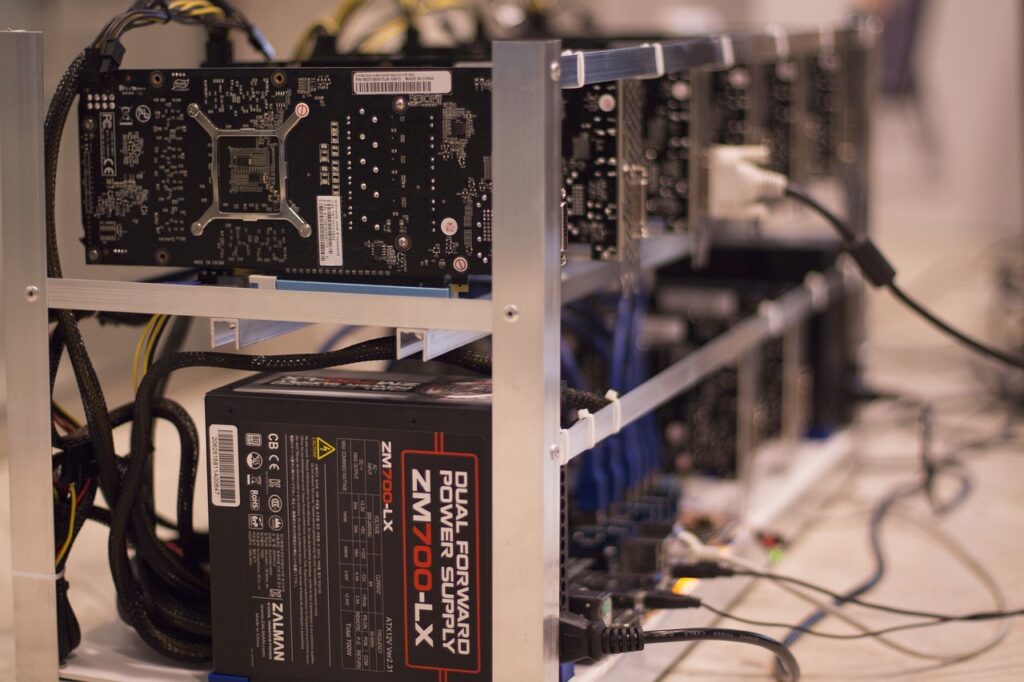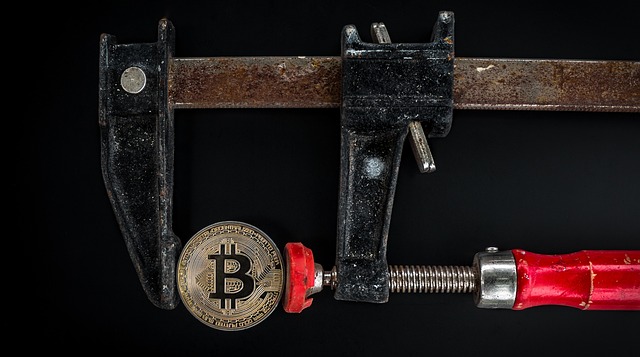Behind the Scenes: Exploring the Building Blocks of DeFi
Behind the Scenes: Exploring the Building Blocks of DeFi

The Evolution of Decentralized Finance (DeFi)
Decentralized finance (DeFi) has witnessed a remarkable evolution over the years, transforming the traditional financial landscape into a more inclusive and accessible ecosystem. With the advent of blockchain technology, DeFi platforms have emerged as a viable alternative to centralized financial institutions, enabling users to engage in various financial activities directly from their digital wallets. This evolution has been driven by the desire for greater financial freedom, transparency, and efficiency, as individuals seek to take control of their own financial destinies.
One of the key aspects that have fueled the evolution of DeFi is the concept of smart contracts. These self-executing contracts are coded into blockchain networks, eliminating the need for intermediaries and automating the execution of predefined conditions. By harnessing the power of smart contracts, DeFi platforms have paved the way for decentralized lending and borrowing, decentralized exchanges, and a diverse range of innovative financial products and services. This shift towards automation and efficiency has not only expedited transaction processes but also minimized the risk of fraud and manipulation, making DeFi an attractive prospect for tech-savvy individuals seeking alternative financial solutions.
Understanding the Core Principles of DeFi
Decentralized Finance (DeFi) is an emerging and rapidly growing sector that promises to revolutionize the traditional financial system. At its core, DeFi is built on the principles of openness, transparency, and accessibility, aiming to provide financial services to anyone with an internet connection, without the need for intermediaries such as banks. This has the potential to democratize finance and empower individuals worldwide.
One of the fundamental principles of DeFi is the use of blockchain technology, specifically smart contracts. Smart contracts are self-executing contracts with the terms of the agreement directly written into code. They automatically execute transactions when predetermined conditions are met, eliminating the need for intermediaries and ensuring trust and efficiency in financial transactions. By leveraging smart contracts, DeFi platforms can offer a wide range of financial services, including lending, borrowing, trading, and investing, all in a decentralized and secure manner.
Unleashing the Power of Smart Contracts in DeFi
Smart contracts have revolutionized the world of decentralized finance (DeFi), unleashing unprecedented power and potential. These self-executing agreements, coded on a blockchain, eliminate the need for intermediaries, allowing for peer-to-peer transactions to occur seamlessly and securely. By automating contract enforcement and eliminating the need for trust, smart contracts enable DeFi platforms to operate transparently, efficiently, and without the traditional barriers and limitations.
The power of smart contracts lies in their ability to autonomously facilitate complex financial transactions and protocols. These contracts are executed automatically when certain predetermined conditions are met, ensuring the enforcement of agreements without the need for human intervention. This not only reduces costs and inefficiencies but also removes the risks associated with centralized intermediaries. Additionally, the transparent and immutable nature of blockchain technology ensures that all parties involved in a transaction can verify and audit the execution of the smart contract, further enhancing the trust and security in DeFi ecosystems. The potential for innovation and disruption through smart contracts in DeFi is immense, opening up new possibilities for financial inclusion, accessibility, and decentralized governance.
Exploring the Role of Decentralized Exchanges (DEX) in DeFi
Decentralized exchanges (DEX) play a crucial role in the realm of decentralized finance (DeFi). Unlike traditional exchanges, DEXs operate on blockchain networks, allowing users to trade cryptocurrencies directly with each other without the need for intermediaries. This eliminates the need for a central authority to oversee transactions, making DEXs inherently more secure and transparent.
One of the key advantages of DEXs is their ability to provide users with greater control over their funds. By utilizing smart contracts, DEXs enable users to retain sole ownership of their assets throughout the trading process. This eliminates the need to transfer funds to a centralized exchange, reducing the risk of hacking or theft. Additionally, DEXs offer increased privacy as they do not require users to provide personal information or undergo extensive verification procedures. This makes them particularly attractive to individuals who value their financial autonomy and prioritize anonymity.
The Importance of Liquidity Pools in DeFi Platforms
Liquidity pools play a crucial role in the decentralized finance (DeFi) ecosystem. These pools are essentially smart contracts that contain funds contributed by users, which are then used for trading and providing liquidity to various decentralized exchanges (DEXs). By contributing funds to a liquidity pool, users can earn passive income through trading fees and other incentives.
One of the key benefits of liquidity pools is that they allow for seamless and efficient trading without the need for traditional order books. Instead, trades are executed through automated market makers (AMMs), which rely on algorithms to determine the price based on the supply and demand of the assets in the pool. This ensures that trades can be conducted instantly and without the need for intermediaries. Additionally, liquidity pools create opportunities for smaller investors to participate in the DeFi space, as they can contribute their assets to the pool and earn returns without having to individually trade on exchanges.
Unraveling the Magic of Yield Farming in DeFi
Yield farming has become one of the hottest trends in the world of decentralized finance (DeFi).

What makes yield farming so appealing is the potential for high returns. By participating in yield farming, users can earn lucrative interest rates that far surpass traditional savings accounts. However, it’s important to note that yield farming is not without risks. The decentralized nature of DeFi means that there is no central authority overseeing these protocols, which increases the potential for vulnerabilities and smart contract exploits. Therefore, it is crucial for yield farmers to conduct thorough research and due diligence before diving into the world of yield farming.
Navigating the World of Decentralized Lending and Borrowing in DeFi
Decentralized lending and borrowing have revolutionized the world of finance, making it more accessible and inclusive. In traditional lending systems, banks act as intermediaries, making lending and borrowing a cumbersome process. However, in the decentralized finance (DeFi) space, smart contracts are leveraged to eliminate the need for intermediaries, allowing individuals to lend and borrow directly with each other.
One of the key advantages of decentralized lending and borrowing in DeFi is the elimination of borders and restrictions. Unlike traditional systems, DeFi platforms are open to anyone with an internet connection, enabling individuals from all around the globe to participate in lending and borrowing activities. This inclusivity not only provides individuals with access to much-needed capital, but it also fosters financial empowerment and opportunity for those who have traditionally been excluded from the formal banking sector. With decentralized lending and borrowing, individuals can securely lend or borrow funds directly from others anytime, anywhere, without the need for approval or permission from a centralized authority.
• Decentralized lending and borrowing in DeFi eliminates the need for intermediaries like banks.
• Smart contracts are used to facilitate direct lending and borrowing between individuals.
• DeFi platforms are open to anyone with an internet connection, allowing global participation.
• Inclusivity in decentralized lending and borrowing provides financial empowerment and opportunities.
• Individuals can securely lend or borrow funds without approval from a centralized authority.
The Rise of Decentralized Stablecoins in DeFi Ecosystems
Decentralized stablecoins have emerged as a key component of DeFi ecosystems, providing stability and certainty in an otherwise volatile market. These digital assets are pegged to a stable external value, such as a fiat currency or a basket of assets, ensuring that their value remains relatively constant. By achieving price stability, decentralized stablecoins enable users to transact with confidence and mitigate the risks associated with cryptocurrency price fluctuations. In addition, decentralized stablecoins eliminate the need for intermediaries, enabling users to have full control over their funds and facilitating peer-to-peer transactions with ease.
One of the most well-known decentralized stablecoins is Tether (USDT), which is pegged to the US dollar. However, numerous other decentralized stablecoins have emerged, each with its own unique characteristics and value propositions. For example, DAI, a stablecoin created by MakerDAO, is backed by collateral assets held in smart contracts.

Delving into the Security Measures and Risks of DeFi
Decentralized Finance (DeFi) has revolutionized the financial landscape by offering innovative solutions that eliminate the need for intermediaries. However, with great opportunities come great risks. In this section, we will delve into the security measures and risks associated with DeFi.
One of the main security measures in DeFi is the utilization of smart contracts. Smart contracts are self-executing contracts with the terms of the agreement directly written into code. They ensure that transactions are executed as intended, without the need for trust or intermediaries. However, despite their inherent security features, smart contracts are not immune to vulnerabilities. The decentralized nature of DeFi also means that there is no central authority to oversee transactions, making it challenging to address issues when they arise. As a result, there have been instances of smart contract exploits and hacks, leading to significant financial losses. It is crucial for participants in the DeFi ecosystem to conduct thorough audits of smart contracts and remain vigilant to minimize the risks involved.
Another risk in DeFi is the lack of regulation and robust governance mechanisms. Unlike traditional financial systems, DeFi operates in a decentralized manner, without any authoritative oversight. While this allows for innovation and freedom, it also creates a breeding ground for fraudulent activities and scams. It is essential for users to exercise caution when engaging with new or unfamiliar projects and thoroughly research the team, tokenomics, and security measures in place. Additionally, due to the pseudonymous nature of many DeFi protocols, it becomes difficult to hold bad actors accountable in case of malicious actions. As the DeFi industry continues to evolve, it is crucial for governments and regulatory bodies to strike a balance between innovation and investor protection to ensure the long-term sustainability and security of the ecosystem.
The Future of DeFi: Innovations and Challenges Ahead
The future of DeFi holds exciting innovations and challenging hurdles that will shape the landscape of decentralized finance. As the industry continues to evolve, one of the key areas of innovation lies in enhancing the scalability and interoperability of DeFi protocols. This involves exploring solutions that can handle a high volume of transactions, allowing for seamless integration between different DeFi platforms. Efforts are being made to address scalability issues through layer two solutions and cross-chain interoperability, which will pave the way for a more efficient and accessible DeFi ecosystem.
Another area of innovation is the development of decentralized identity solutions. Currently, most DeFi platforms require users to go through sign-up processes and provide personal information. However, with the advent of decentralized identity systems, users will have more control over their personal data while still being able to access DeFi services. This will not only enhance privacy and security but also enable a more inclusive financial system by reaching individuals without traditional identification documents. By leveraging blockchain technology, decentralized identity solutions can revolutionize the way we interact with DeFi and unlock new possibilities for financial inclusion.
Despite these exciting innovations, the future of DeFi also presents its fair share of challenges. One of the major hurdles facing the industry is regulatory uncertainty. As DeFi continues to gain mainstream attention, regulators are grappling with how to apply existing laws and regulations to this rapidly evolving sector. Striking the right balance between consumer protection and fostering innovation will be crucial in ensuring the long-term success of DeFi. Additionally, as the industry grows, concerns surrounding security and auditing practices become even more prominent. It is essential for DeFi projects to implement robust security measures and undergo regular audits to build trust and safeguard user assets.
In conclusion, the future of DeFi is brimming with exciting innovations and challenges. From enhancing scalability and interoperability to revolutionizing identity solutions, the industry is poised for significant advancements in the coming years. However, navigating regulatory hurdles and prioritizing security will be vital in sustaining the growth and adoption of DeFi. As the industry continues to mature, collaboration between regulators, developers, and users will be key to fostering a thriving and inclusive decentralized finance ecosystem.
What is decentralized finance (DeFi)?
DeFi, short for decentralized finance, refers to a revolutionary system that aims to recreate traditional financial services using blockchain technology. It eliminates the need for intermediaries like banks and intermediaries and enables peer-to-peer transactions directly on the blockchain.
How has DeFi evolved over time?
DeFi has come a long way since its inception. It started with basic functionalities like lending and borrowing platforms, and has now expanded to include decentralized exchanges, liquidity pools, yield farming, stablecoins, and more. The constant innovation in the DeFi space is driving its growth and adoption.
What are the core principles of DeFi?
The core principles of DeFi include decentralization, transparency, accessibility, and open source. These principles ensure that financial services are accessible to anyone, transactions can be verified by anyone on the blockchain, and users have complete control over their funds without relying on centralized authorities.
How do smart contracts empower DeFi?
Smart contracts are self-executing contracts with the terms of the agreement directly written into the code. They remove the need for intermediaries and enable automation of various financial processes in DeFi.

What role do decentralized exchanges (DEX) play in DeFi?
Decentralized exchanges (DEX) are a key component of DeFi, enabling users to trade cryptocurrencies directly with each other without the need for a central authority. DEXs provide greater privacy, security, and control over funds compared to traditional centralized exchanges.
Why are liquidity pools important in DeFi platforms?
Liquidity pools are essential in DeFi platforms as they provide the necessary liquidity for decentralized exchanges and lending platforms. Users can deposit their funds into these pools, which are then utilized for trading and lending. In return, users earn a portion of the fees generated by the platform.
What is yield farming in DeFi?
Yield farming involves lending or staking cryptocurrencies in decentralized platforms to earn additional rewards or tokens. It allows users to maximize their returns by taking advantage of various DeFi protocols and their associated incentives. However, it also carries certain risks, such as smart contract vulnerabilities or impermanent loss.
How does decentralized lending and borrowing work in DeFi?
Decentralized lending and borrowing platforms in DeFi enable users to lend their cryptocurrencies and earn interest or borrow assets by providing collateral. These platforms operate through smart contracts, ensuring transparency, efficiency, and accessibility for borrowers and lenders.
What are decentralized stablecoins in DeFi ecosystems?
Decentralized stablecoins are cryptocurrencies designed to maintain a stable value, often pegged to a fiat currency like the US dollar. They provide stability in the volatile cryptocurrency market and are used for various financial transactions within DeFi platforms.
What security measures and risks should be considered in DeFi?
DeFi platforms face security risks such as smart contract vulnerabilities, hacking attempts, and decentralized autonomous organization (DAO) attacks. It is crucial for users to conduct thorough research and due diligence before using any DeFi platform. Additionally, implementing strong security measures, like audits, bug bounty programs, and multi-signature wallets, can help mitigate risks.
What innovations and challenges lie ahead for DeFi?
The future of DeFi holds exciting possibilities, including cross-chain interoperability, decentralized identity solutions, improved scalability, and regulatory frameworks. However, challenges such as scalability issues, regulatory uncertainty, and user adoption need to be addressed for DeFi to reach its full potential.
Todays Featured Product:
Buy, exchange and grow your crypto securely with a Ledger hardware wallet, combined with the Ledger Live app. It’s never been easier to keep your crypto safe and accessible. Buy direct from Ledger.com and get todays Special Offers Here.




